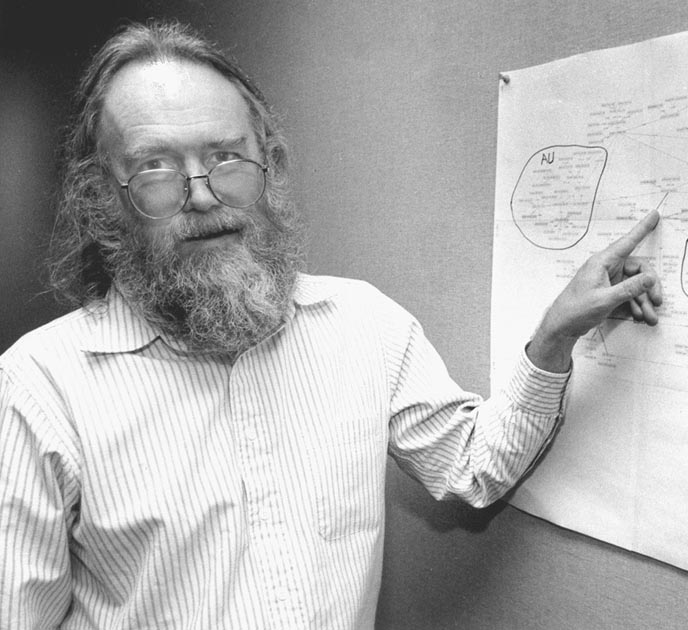When asked "What do you think of being called a god?" in "Heavenly Father of the NET", an interview article in NetWorker (Summer 1997); This refers to a statement "if the Net does have a god, he is probably Jon Postel", which appeared in the British magazine The Economist.
Контексте: I think they called me the closest thing to a God of the Internet. But at the end, that article wasn’t very complimentary, because the author suggested that I wasn’t doing a very good job, and that I ought to be replaced by a "professional."
Of course, there isn’t any "God of the Internet." The Internet works because a lot of people cooperate to do things together.
Постел, Джонатан Брюс: Цитаты на английском языке
The "Robustness Principle", RFC 793 http://www.ietf.org/rfc/rfc0793.txt, Transmission Control Protocol, entire text of section 2.10 (September 1981).
RFC 791 http://www.ietf.org/rfc/rfc0791.txt, Internet Protocol (September 1981)
Often shortened to Be liberal in what you accept, and conservative in what you send.
RFC (Request for Comments) document: RFC 791 http://www.ietf.org/rfc/rfc0791.txt, Internet Protocol (September 1981)
This is often mistakenly attributed to Jon Postel, but it is actually a very slight variation on a quotation from John Shoch; both RFC-791 and its earlier version RFC-760 include, at the point in the text where this passage appears, a reference to Shoch's paper Inter-Network Naming, Addressing, and Routing, which is the original source of this observation.
Misattributed
Where Wizards Stay Up Late (1996) by Katie Hafner and Matthew Lyon
Of course, there isn’t any "God of the Internet." The Internet works because a lot of people cooperate to do things together.
When asked "What do you think of being called a god?" in "Heavenly Father of the NET", an interview article in NetWorker (Summer 1997); This refers to a statement "if the Net does have a god, he is probably Jon Postel", which appeared in the British magazine The Economist.
The Economist (1997-02-08).
